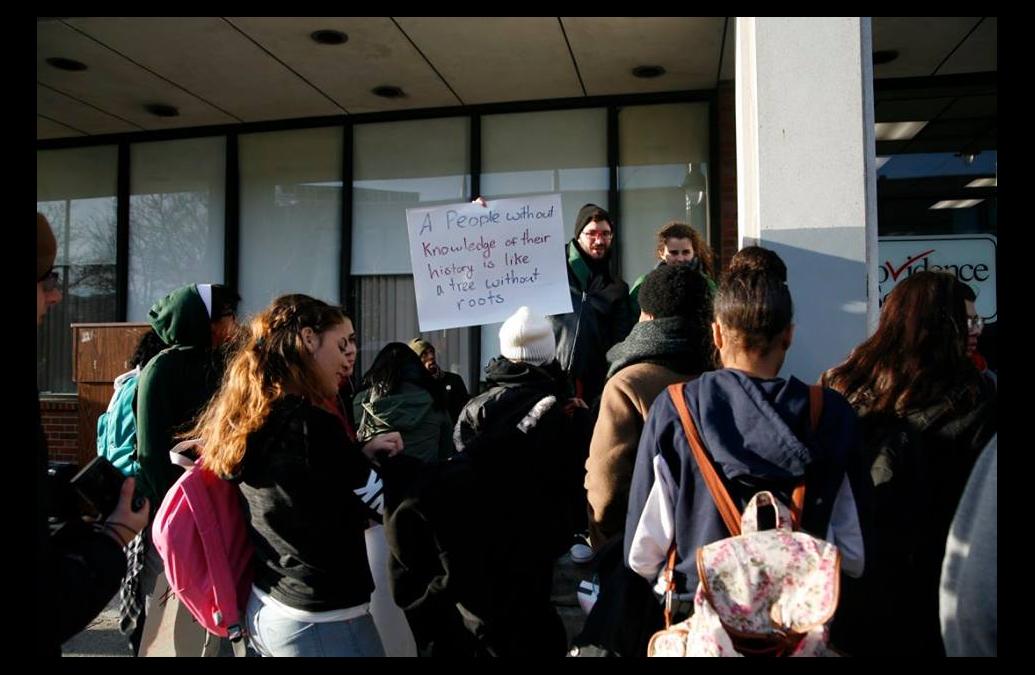The Meaning of Community Work

Ari is a Community Fellow for Winter Break Projects and plans to double concentrate in History and Portuguese & Brazilian Studies.
The phrase “community work” gets tossed around a lot these days. Since arriving at Brown, I’ve generally heard people deploy the term in opposition to “community service” to imply a more active engagement with groups and individuals in Providence, but I didn’t have a firm grasp of what “community work” meant in a tangible context.
That all changed on one frigid afternoon this past January.
On that day, I found myself in a small but lively group of people on the sidewalk outside the Providence School District Superintendent’s office. The crowd—which included high school students, adults who worked in the schools, and other onlookers—had gathered to witness the launch of Providence Student Union’s campaign to include Ethnic Studies in the city’s high school curriculum.
I was in Providence before the start of the Spring semester as a co-coordinator of Winter Break Projects (WBP), a weeklong, peer-led program that aims to introduce a group of Brown students to various issues in Providence and to the steps that community members are taking to address those issues. On this particular day, I had joined the WBP education focus group to attend the launch of the Ethnic Studies campaign.
The crowd buzzed with energy as students handed out signs and people gathered close together against the icy wind. Everyone quieted down when the emcee, a PSU student, took the stage to begin the event. After introducing the campaign to raucous cheering, the emcee turned the mic—which in this case was a bullhorn—over to a series of high school students who presented the case for adding Ethnic Studies to the curriculum. Each student brought up different points, but the general argument was that in a school district where over 90% of the students are people of color, an Ethnic Studies program is especially necessary to combat the erasure of non-white groups in conventional History classes, which focus almost exclusively on Euro-American narratives.
After the last student finished speaking, the crowd broke out in cheers that rang up and down Westminster Street through the chill air. All around me students chatted, joked, and embraced. A few people formed an impromptu drum circle, banging out rhythms with their hands on plastic buckets. The warmth and energy of the crowd created a small oasis of cheer on a day where most people hustled down the sidewalks without smiling, their shoulders bent against the cold.
I thought about the phrase “community work” as I walked back to the church where the WBP students stay for the week. I knew that PSU’s Ethnic Studies campaign was a perfect example of a group of people working to make their city and their community more responsive to their needs as students, citizens, and individuals.
Then I realized that I actually did have a clear, articulable definition of community work.
